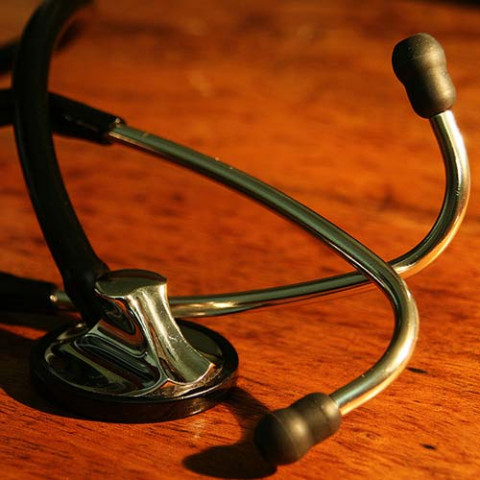Patients at Karachi’s top hospitals deprived of full medical cover
Experts say hospital management plagued by ‘top-to-bottom’ corruption

The patients in Karachi’s three major hospitals have for the last decade been deprived of reaping full benefits from the medical cover they are legally entitled to, an investigation report revealed on Sunday.
The patients admitted at the three major hospitals - Dr Ruth Pfau Civil Hospital, Jinnah Postgraduate Medical Centre (JPMC), Abbasi Shaheed Hospital - are being compelled to buy certain expensive medicines from private stores with their own money, said the investigative story conducted by senior journalist M Nawaz Khuhro.
“A maximum of 50% medicine cover is being provided to the admitted patients in these hospitals, which is low,” PMA Centre Secretary General Dr SM Qaisar Sajjad said, adding that the “inability” of these hospitals to cover full treatment of their patients sometimes drops below 50% due to chronic shortage of drugs, which usually deplete merely within three to four days of their arrival.
However, independent experts claim that the hospital management is plagued by ‘top-to-bottom’ corruption, saying the medicines are often sold to private stores. They alleged that the commonplace rationale given by the top health officials – who blame population rise and limited resources - for washing their hands of their responsibility is all but a lame excuse.
In an interview, Abid Hussain, a health expert who has been monitoring these major hospitals for a decade, also confirmed that patients at JPMC, CHK and ASH were not getting proper medicines cover.
"At JPMC and CHK, an estimated 65-70 per cent of required medicines are being provided to the admitted patients, while their OPD patients are getting 50-60 per cent of required medicines," he said.
However, at ASH, the admitted patients are getting 25-35% of required medicines. He said that the Sindh government gives a low budget for ASH as compared to JPMC and CHK.
He alleged that some share of medicines, which belongs to patients’ medical cover, particularly the costly drugs, are being sold to stores in connivance with paramedics, nurses and doctors while a chunk of it is also handed over to top officials of the hospital.
Meanwhile, OPD services at Dr Ruth Pfau Civil Hospital Karachi cater to 7,000 patients daily, the Jinnah Postgraduate Medical Centre (JPMC) provides treatment to 8,000 patients, and Abbasi Shaheed Hospital caters to 5,000 patients each day.
Delayed issuance of tenders
The delays in the issuance of tenders to purchase medicines on a centralised basis policy is the major reason behind the shortage of drugs in the hospital.
According to a study in BMJ Open, a leading multidisciplinary medical journal, 89% of physicians and 93.2% of pharmacists reported that medicines shortages have led to adverse effects on treatment, including delays in treatment, complications in substandard treatment, prolonged hospital stay, swelling treatment costs and even death of the patient.
Read More: New eye hospital for South Punjab patients
Despite the rise in health budgets by federal and Sindh governments, these major hospitals often face medicine shortages, putting the lives of patients at stake as poor patients could not afford to purchase costly medicines from the private stores.
In the fiscal year 2020-21, the Sindh health department budget was raised by 16.1 per cent to Rs139.18 billion, but there is no improvement in medicines provided to the patients.
According to a federal finance ministry’s survey, health expenditures have increased gradually to 1.2 per cent in 2019-20 from 0.7 in 2011-12. The survey says after the passage of the 18th constitutional amendment, provision of health services is the mandate of the provincial governments, however, the federal government has supported various health-related projects through Public Sector Development Programme (PSDP), for the fulfilment of Sustainable Development Goals (SDGs) and overall health status in the country.
During FY2021, PSDP allocations of Rs20,193.9 million were made for 71 health sector projects. In addition, the government has introduced a special programme with an outlay of Rs70 billion to mitigate the impact of the Covid-19 pandemic. But despite this, full medical cover is not being provided to the admitted patients which is injustice.
They said that doctors also prescribed medicines that were not in the stock of hospitals’ pharmacies - a blame which health expert Mr Abid endorsed.
Abid also said that there was a cartel between doctors and medical stores as doctors prescribed certain medicines which were not at hospitals’ stocks and were only available at medical stores.
A survey regarding drug shortage in tertiary care hospitals of Karachi, in which 472 physicians and pharmacists participated, showed that the shortage of injectable forms of the drug is more common, accounting for 52.2 % of the shortage. It said that the main cause of drugs shortage is the increase in drugs' price which was rated by more than 36% of participants.
The adverse outcomes due to the drugs shortage are the longer hospital stays (25%) with the cost of treatment increasing by 14%.
To seek comments from the Sindh health minister on the medical issue, the health department PRO was contacted several times, but he did not respond. Another PRO, however, said that the health minister was not in the city and would be available for the interview later.



















COMMENTS
Comments are moderated and generally will be posted if they are on-topic and not abusive.
For more information, please see our Comments FAQ